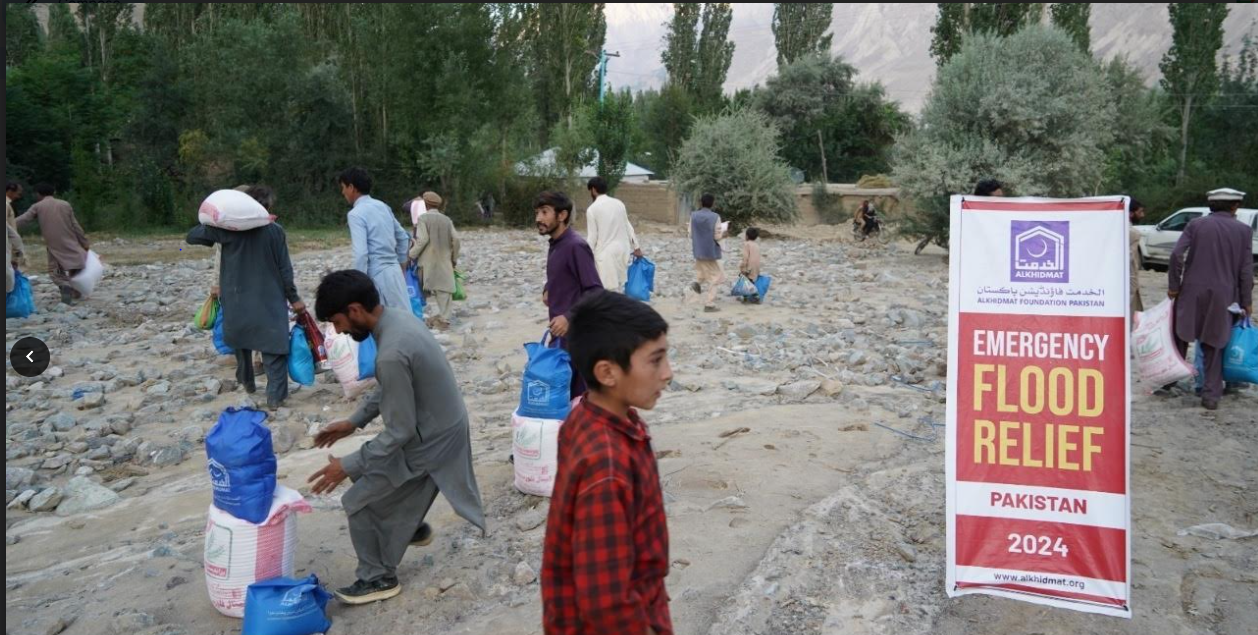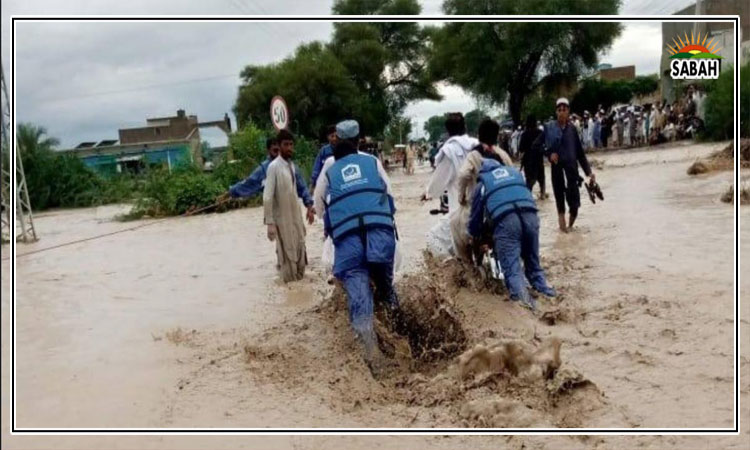Alkhidmat Foundation’s aid activities are ongoing for the rain & flood victims of Balochistan, GB & Sindh: Ejazullah Khan
RAWALPINDI, Aug 20 (SABAH): Central Vice President Alkhidmat Foundation Pakistan and Chairman Disaster Management Ejazullah Khan has said that the Department of Disaster Management of Alkhidmat Foundation Pakistan is fully prepared to deal with any emergency situation with regional teams and volunteers. He said that aid equipment regarding rescue and relief assistance to the region and districts has been provided.

Ejazullah Khan said aid activities are ongoing for the rain and flood victims of Balochistan, Gilgit-Baltistan and Sindh. After the rains, flood situation occurred in some areas, the citizens trapped in the floods were taken to safe places after rescue and these victims were provided with food, food packages, tents, tarpaulin sheets and other assistance, he noted.
He said medical camps have also been set up to provide medical facilities to the victims and protect them from epidemics, while Alkhidmat Mobile Health Units have also been mobilized.
Speaking at the meeting of the relief operation, Ejazullah Khan said that the volunteers of Alkhidmat rescued 354 people in the areas of Bhimbret, Gulyan and Mori Bala of Chitral and brought them to safe places and provided them with relief materials. Medicines were provided to 480 victims of floods after free medical check-up.
He said 50 people were rescued from floods in Astor area of Gilgit-Baltistan, after which relief materials were provided to the victims, while 521 people benefited from the medical camp organized by Alkhidmat. Relief activities for the victims are also ongoing in Ziarat and Qilla Saifullah areas of Baluchistan, he added.
Ejazullah Khan said that 31 volunteers participated in the ongoing relief activities in the affected area of Skarund in Sindh, while relief materials were provided to the affected families. He said that in view of the rains and possible floods in the districts across Pakistan, the flood emergency centers at the central and regional levels have been put on high alert.












